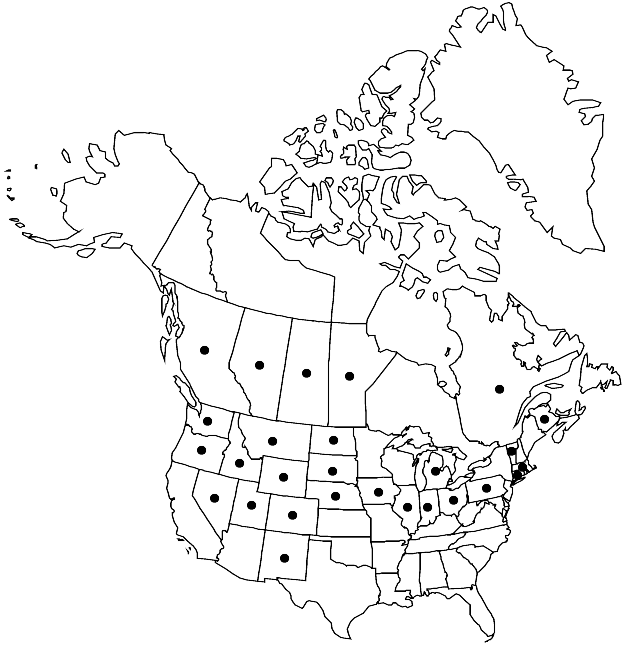Difference between revisions of "Sisymbrium loeselii"
Cent. Pl. I, 18. 1755.
FNA>Volume Importer |
imported>Volume Importer |
||
| (One intermediate revision by the same user not shown) | |||
| Line 6: | Line 6: | ||
|place=18. 1755 | |place=18. 1755 | ||
|year=1755 | |year=1755 | ||
| + | }} | ||
| + | |special_status={{Treatment/ID/Special_status | ||
| + | |code=W | ||
| + | |label=Weedy | ||
| + | }}{{Treatment/ID/Special_status | ||
| + | |code=I | ||
| + | |label=Introduced | ||
}} | }} | ||
|basionyms= | |basionyms= | ||
| Line 23: | Line 30: | ||
|elevation=0-2400 m | |elevation=0-2400 m | ||
|distribution=Alta.;B.C.;Man.;N.B.;Que.;Sask.;Colo.;Conn.;Idaho;Ill.;Ind.;Iowa;Mass.;Mich.;Mont.;Nebr.;Nev.;N.Mex.;N.Dak.;Ohio;Oreg.;Pa.;S.Dak.;Utah;Vt.;Wash.;Wyo.;e Europe;w;c Asia. | |distribution=Alta.;B.C.;Man.;N.B.;Que.;Sask.;Colo.;Conn.;Idaho;Ill.;Ind.;Iowa;Mass.;Mich.;Mont.;Nebr.;Nev.;N.Mex.;N.Dak.;Ohio;Oreg.;Pa.;S.Dak.;Utah;Vt.;Wash.;Wyo.;e Europe;w;c Asia. | ||
| + | |introduced=true | ||
|tables= | |tables= | ||
|references= | |references= | ||
| Line 45: | Line 53: | ||
|publication title=Cent. Pl. I, | |publication title=Cent. Pl. I, | ||
|publication year=1755 | |publication year=1755 | ||
| − | |special status= | + | |special status=Weedy;Introduced |
| − | |source xml=https:// | + | |source xml=https://bitbucket.org/aafc-mbb/fna-data-curation/src/2e0870ddd59836b60bcf96646a41e87ea5a5943a/coarse_grained_fna_xml/V7/V7_1145.xml |
|tribe=Brassicaceae tribe Sisymbrieae | |tribe=Brassicaceae tribe Sisymbrieae | ||
|genus=Sisymbrium | |genus=Sisymbrium | ||
Latest revision as of 22:30, 5 November 2020
Annuals; densely hispid at least proximally. Stems erect, branched distally, (2–)3.5–12(–17.5) dm, often densely hispid proximally, (trichomes retrorse), usually glabrous distally. Basal leaves rosulate; petiole 1–4(–5) cm; blade broadly oblanceolate (in outline), (1.5–)2.5–8(–12) cm × (10–)20–50(–70) mm, margins runcinate to lyrate-pinnatifid; lobes 2–4 on each side, much smaller than terminal lobe, margins entire or dentate, (terminal lobe triangular, often hastate). Cauline leaves similar to basal; blade (much smaller than basal, to 1.5 cm wide), margins entire or toothed. Fruiting pedicels divaricate or ascending, slender, narrower than fruit, 5–12(–15) mm. Flowers: sepals ascending, oblong, 3–4 × 1–1.5 mm; petals spatulate, 6–8 × 2–3 mm, claw 2.5–3.5 mm; filaments 3–4.5 mm; anthers ovate, 0.6–1 mm. Fruits (ascending to suberect, young fruits not overtopping flowers), narrowly linear, curved or straight, subtorulose, slender, 2–3.5(–5) cm × 0.9–1.1 mm; valves often glabrous; ovules 40–60 per ovary; style stout, 0.3–0.7 mm; stigma prominently 2-lobed. Seeds 0.7–1 × 0.5–0.6 mm. 2n = 14.
Phenology: Flowering late May-early Nov.
Habitat: Valleys, stream banks, fields, roadsides, pastures, waste grounds, vacant lots, prairies, disturbed sites, railroad tracks
Elevation: 0-2400 m
Distribution

Introduced; Alta., B.C., Man., N.B., Que., Sask., Colo., Conn., Idaho, Ill., Ind., Iowa, Mass., Mich., Mont., Nebr., Nev., N.Mex., N.Dak., Ohio, Oreg., Pa., S.Dak., Utah, Vt., Wash., Wyo., e Europe, w, c Asia.
Discussion
Selected References
None.